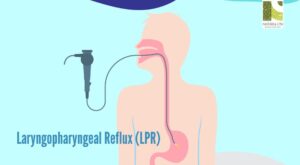What Does a Positive Pregnancy Test After a Miscarriage Mean?

Discovering a positive pregnancy test after a miscarriage can be emotionally confusing and medically puzzling. It can raise several questions—Am I pregnant again? Is this a leftover hormone? Is something wrong? This blog explores what a positive test could mean after a miscarriage, helping you understand your body, timeline, and when to seek medical advice.
Understanding the Basics: Pregnancy Tests and hCG
Most home pregnancy tests detect the presence of hCG (human chorionic gonadotropin), a hormone produced by the placenta shortly after fertilization. After a miscarriage, your body doesn’t instantly eliminate hCG. It takes days to weeks for hCG levels to return to zero, depending on how far along the pregnancy was.
How long does hCG stay in your system?
- Chemical pregnancies or early miscarriages: hCG may clear within 1–2 weeks.
- Later miscarriages (after 8–10 weeks): hCG can take several weeks to return to non-pregnant levels.
- According to a study published in Fertility and Sterility, the average hCG half-life after pregnancy loss is approximately 24–36 hours, but varies widely by individual.
What Does a Positive Test After Miscarriage Mean?
Residual hCG From the Miscarriage
- The most common reason for a positive result is leftover hCG from the previous pregnancy.
- A slow decline in hCG does not necessarily mean retained tissue or pregnancy.
- If hCG plateaus or rises, further evaluation is needed.
Incomplete Miscarriage / Retained Products of Conception (RPOC)
- In some cases, tissue from the pregnancy remains in the uterus, producing small but detectable amounts of hCG.
- Signs may include:
- Prolonged bleeding
- Cramping
- Infection symptoms (fever, discharge)
- A pelvic ultrasound and quantitative hCG test are used for diagnosis.
New Pregnancy
- It is possible to conceive again very soon after a miscarriage, even before your next period.
- A new pregnancy can cause a rise in hCG, resulting in a positive test.
- This is not uncommon, especially if ovulation occurred 2–3 weeks after miscarriage.
Molar Pregnancy (Rare)
- A molar pregnancy, or gestational trophoblastic disease (GTD), is an abnormal growth of placental tissue.
- It can cause persistently high or erratic hCG levels even after miscarriage.
- It requires urgent attention and follow-up with a gynecologic oncologist.
Timeline: What to Expect After Miscarriage
| Weeks Since Miscarriage | What You May See | Positive Test Likely? |
|---|---|---|
| 1–2 weeks | Spotting, cramps | Yes |
| 3–4 weeks | Hormones taper | Possibly |
| 4–6 weeks | First period may return | Unlikely unless pregnant again |
| 6+ weeks | Normal cycles resume | No, unless re-pregnant or complication |
When to Seek Medical Attention
You should consult your OB-GYN or fertility specialist if:
- Your pregnancy test remains positive more than 3–4 weeks post-miscarriage.
- You have increased bleeding, pain, or fever.
- hCG levels plateau or rise (quantitative blood test needed).
- You have concerns about trying to conceive again.
Recommended tests:
- Serial hCG blood levels
- Transvaginal ultrasound
- Pelvic exam
- In rare cases, MRI or dilation & curettage (D&C) if retained tissue is suspected.
Emotional Impact: Give Yourself Time
A positive test after a miscarriage can stir hope, fear, confusion, or sadness. Miscarriage is both a physical and emotional loss, and your healing journey is deeply personal.
Takeaway:
- It’s okay to feel conflicted.
- Give your body time to heal.
- Reach out to your doctor or mental health provider when in doubt.
Can You Try Again?
Yes. The WHO used to recommend waiting 6 months, but newer studies suggest that trying again after one normal menstrual cycle is safe for many women. Consult your doctor about timing based on your individual case.
Scientific References
- American Pregnancy Association – hCG Levels
- NIH Study – Serial hCG monitoring after miscarriage
- Fertility and Sterility – hCG decline patterns
- Cleveland Clinic – Molar Pregnancy
- Mayo Clinic – Miscarriage: What to expect
- RCOG Guidelines – Early pregnancy loss management
A positive pregnancy test after miscarriage is not uncommon, but what it means depends on timing, symptoms, and hormone levels. Whether it signals a new beginning or leftover hormones, it’s always best to stay informed and connected with your doctor.
Be gentle with yourself. Healing is not linear. And hope always finds its way.





